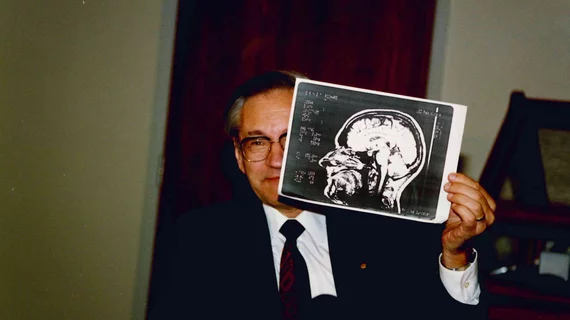Richard Ernst, who helped pioneer MRI, dies at 87
Nobel Prize winner Richard Ernst, PhD, considered an early father of magnetic resonance imaging, died June 4 at the age of 87, according to a report published Tuesday by swissinfo.ch.
The Swiss scientist received the honor in 1991 for his contributions to high-resolution nuclear magnetic resonance spectroscopy, a precursor to MRI. His developments enhanced the sensitivity of this technique first piloted in the 1940s to create body organ images.
Ernst received many other prestigious awards during his career, including the Wolf Prize for Chemistry in 1991 and the Horwitz Prize that same year, along with the Marcel Benoist Prize in 1986.
He was a big proponent of letting young scientists learn on their own.
“Let them do experiments! Sometimes people say chemistry is too dangerous—you can’t do this and that with children—but that’s not really true," he told the Swiss news outlet in a 2011 interview. "There are a few rules which you have to obey, but otherwise you can do a lot of experiments,” he said.
Read the entire story below.

